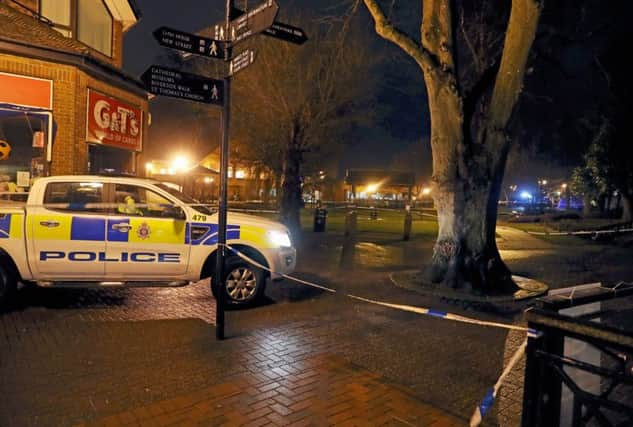Analysis: Was Putin behind '˜murder bid' in the West Country?


As the conspiracy theories circled above him yesterday, only one thing was certain. He had been knocked out by an unknown substance and was fighting for his life. So was his 33-year-old daughter, Yulia.
A woman passing by had spotted them, unconscious on a bench, and presumed they were homeless. She did not know that he was a Russian double agent.
Advertisement
Hide AdAdvertisement
Hide AdNearly 2,000 miles separates the Kremlin from Salisbury’s Maltings Centre – but revenge, as counter-espionage agents were quick to point out, knows no boundaries. And not even the Foreign Secretary Boris Johnson, Britain’s diplomat-in-chief, was hesitating in pointing the finger at Vladimir Putin.
Had the president of the Russian Federation ordered a murder attempt beside the River Avon, on a Sunday afternoon?
It would not have been the first time, said Yuri Felshtinsky, co-author of the book, Blowing Up Russia . “Poisoning is their method of choice,” he said.
He was referring to the Federal Security Service – the FSB – which was, two years ago, was judged by a London inquiry to have masterminded the assassination in 2006 of Mr Felshtinsky’s co-author, Alexander Litvinenko, in an operation that was probably personally approved by Mr Putin.
Advertisement
Hide AdAdvertisement
Hide AdHe, too, had crossed the president, and he, too, was poisoned. A cup of tea laced with radioactive polonium-210 was what did for him.
“This has all the hallmarks of a Putin assassination,” Mr Felshtinsky said of the apparent attempt on Mr Skripal’s life.
“He is warning anyone in the FSB never to defect as they’ll be hunted down and killed.
“Sergei Skripal was a colonel in the FSB, like Alexander Litvinenko. The FSB always kills defectors as a loyalty warning to its agents.”
Advertisement
Hide AdAdvertisement
Hide AdMr Skripal’s route to Salisbury had been an unconventional one. A colonel in Russian military intelligence, he had been convicted in 2006 of passing state secrets to MI6, and sentenced to 13 years in prison. But four years later he was one of four agents pardoned and given refuge in Britain, in a deal said at the time to be the biggest exchange since the Cold War.
Last night, there were signs that the relationship between the two countries was headed back towards the freezer.
Mr Johnson acknowledged the “echoes” of the Litvinenko case, and said it was clear that Russia was now “in many respects a malign and disruptive force”.
Scotland Yard’s assistant commissioner Mark Rowley, the country’s most senior counter-terrorism officer and just two weeks away from retirement, injected a note of intrigue.
Advertisement
Hide AdAdvertisement
Hide Ad“Russian exiles are not immortal,” he said. They do all die and there can be a tendency for some conspiracy theories. But likewise we have to be alive to the fact of state threats as illustrated by the Litvinenko case.”
Richard Walton, one of his predecessors at the Yard, said: “If this is state-sponsored terrorism, and it looks entirely possible, then it will have grave consequences for UK-Russia bilateral relations that are already at breaking point. “The UK cannot tolerate state-sponsored terrorism.”